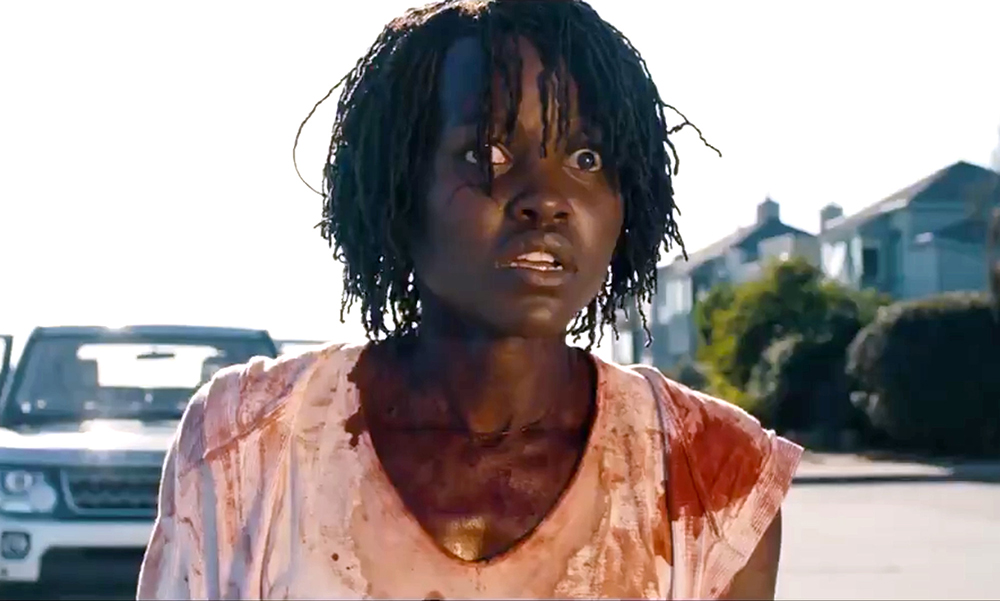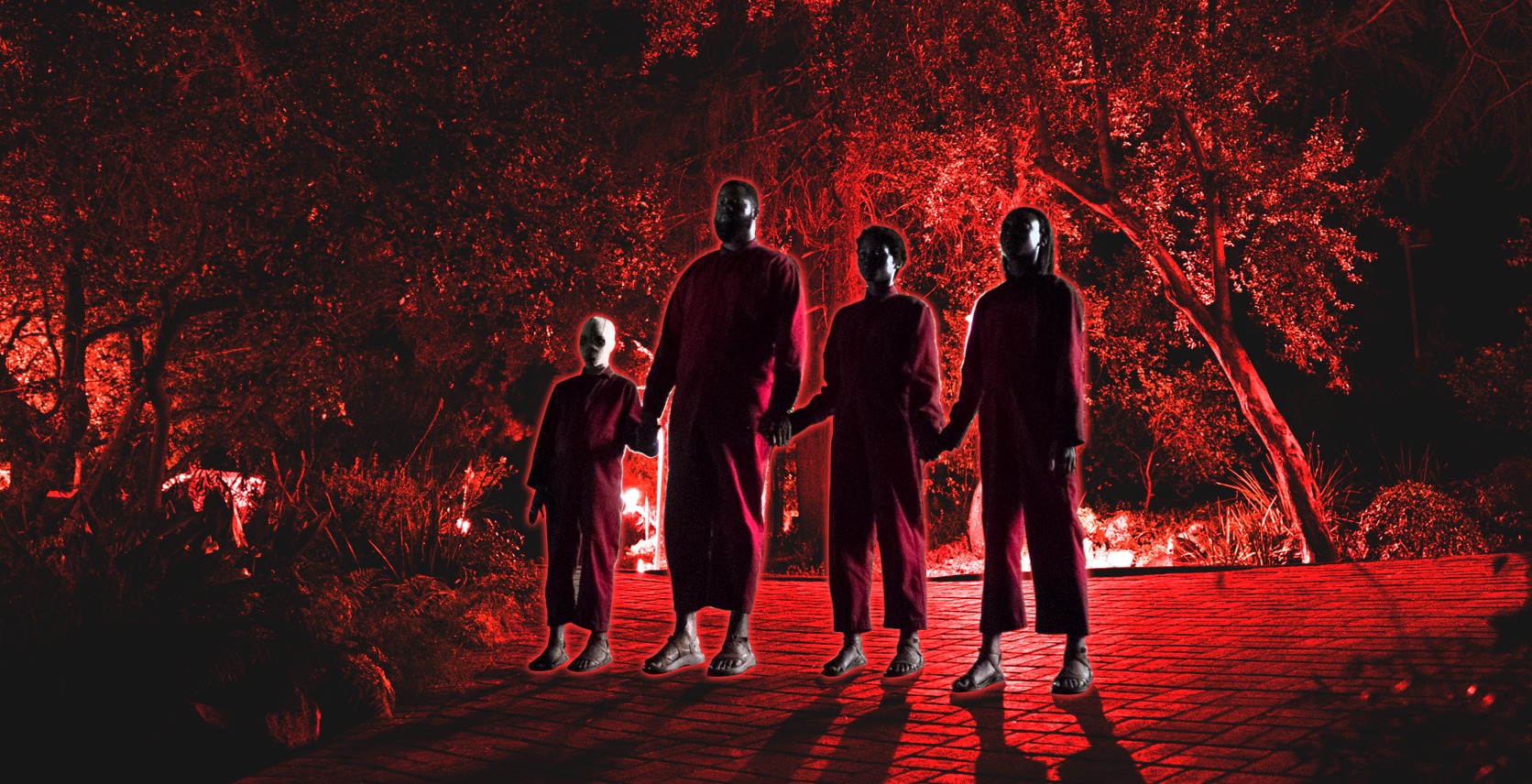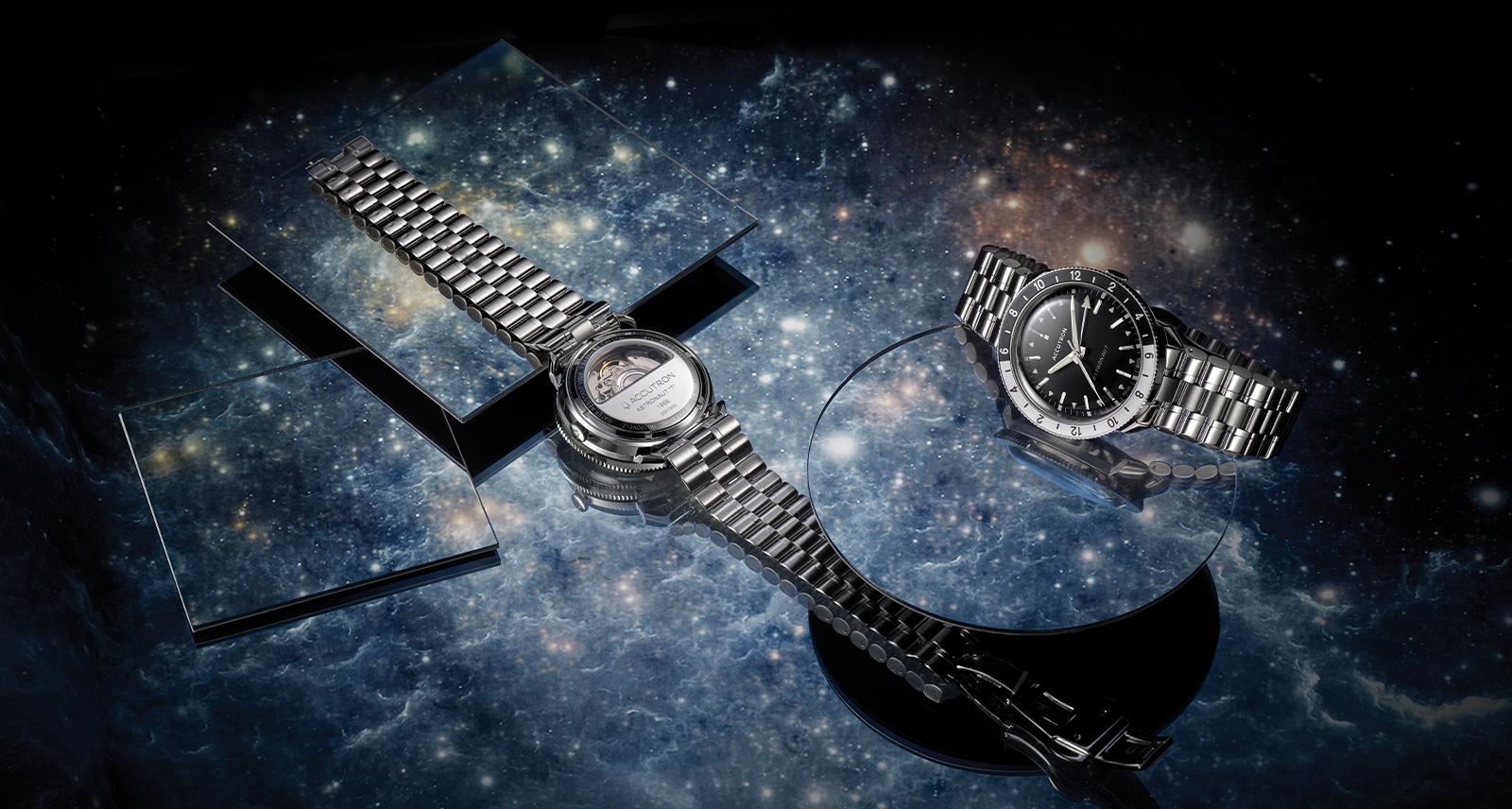On ‘Us,’ and the Problem with Hype
It’s hard to talk about Us, Jordan Peele’s heavily-hyped follow-up to Get Out, without wading waist-deep into spoiler territory. Suffice it to say, just like with the filmmaker’s breakout debut, a weekend of family fun time turns out to be way less wholesome than it initially seems.
This time around though, Peele’s sophomore feature is less thought-provoking “social thriller” and more scream-provoking straight-up horror: complete with creepy evil doppelgängers called the “Tethered” that move like twitchy Japanese horror movie kids, dress like they’re taking style tips from the Rajneeshees, and menace people with scissors. (It does the trick.) And starring former Black Panther co-stars Lupita Nyong’o and Winston Duke (essentially doing a spot-on Peele impression, right down to the glasses).
The buzz around Us has been steadily building for weeks now, much like it did for Get Out back in 2017, the only discernible difference being that the rapturous reviews were coming out of SXSW instead of Sundance. Things were looking on pace for a repeat for the comedian-turned-Oscar-winning filmmaker. The only problem is, this time, the movie doesn’t quite live up to the hype.
To clarify: that’s not the same as saying it’s bad, necessarily. Us is gorgeously shot, with great performances from Nyong’o and Duke, Elisabeth Moss (expected), and Tim Heidecker (definitely not expected). It’s funny and scary without leaning too heavily in either direction. It’s got both regular jokes and dad jokes (so many dad jokes). Thematically-appropriate Bible verses and other clever Easter eggs and fun callbacks. “I Got 5 On It” reworked into a horror theme worthy of John Carpenter. The initial home invasion is skin-crawling, in the best possible way. It’s very much “a mood.” And not at all just some rushed follow-up to get Peele back in theatres ASAP after Get Out’s out-of-nowhere success. It’s the type of movie you’ll be talking about the entire way home. Just maybe not in the way Peele was hoping.
Without giving away too much, Us stumbles pretty hard in the third act, with a series of clunky reveals, far too many characters suffering from the debilitating condition known as Horror Movie Brain, and twists that, well, you’ll see… Taken in pieces, Us is ambitious and exciting. As a coherent whole, it’s a little messier than you’d expect after such an assured directorial debut.
“It’s in our nature to overhype. It’s not enough for something to just be good. Or great. It has to be the greatest.”
Peele has said that the initial inspiration for the movie – a family comes face-to-face with their doppelgängers – came from a classic, early Twilight Zone episode (“Mirror Image”). Which makes perfect sense. In hindsight, it’s exactly the type of twisty, supernatural-adjacent premise that would’ve killed as an episode in the filmmaker’s upcoming Twilight Zone reboot, but feels slightly overstretched as a full-length feature.
Not that it matters, of course: with the hype reaching peak levels just as Us reaches theatres, the movie’s already set to demolish Get Out’s opening weekend box office, no matter what between now and Sunday. Fuelling outsized expectations no movie could possibly match. That’s partly a monster of Peele’s own making – after all, hype is what led Get Out to record-breaking ticket sales, four Oscar nominations, and a win for Best Original Screenplay for the writer/director in the first place.
But hype’s also got its own evil twin: overhyped, and the massive, usually unfair expectations it can lead people to put on movies, or TV shows, or albums, or whatever else the monoculture’s decided to collectively geek out over. It can make people feel like they’re living in their own personal Twilight Zone episode – what am I not seeing that everyone else sees?
Hype makes us do funny things: like spend all night sitting out in the cold for the right to fork over $1,000 for a cell phone, compare M. Night Shyamalan to Alfred Hitchcock after one good movie, and repeatedly call each new superhero movie “the best superhero movie ever.” It’s in our nature to overhype. It’s not enough for something to just be good. Or great. It has to be the greatest.

When it comes to Us, at least, it’s starting to seem like part of the culprit is the film festival echo chamber. The phenomenon’s been called many things over the years – the SXSW bubble, the Sundance effect (and don’t get me started on TIFF; Toronto audiences will give a standing ovation to a L’Oréal ad) – but it’s all the same idea. In that environment, with the stars and filmmakers in attendance, you’re a lot more predisposed to fawn over a movie than when you’re watching it in some sticky multiplex with a bunch of assholes refusing to put their phones away.[1]
I’m speaking from personal experience here, unfortunately – and it’s not just an Austin thing – I barely have to go back seven months to find movies I evangelized out of TIFF that failed to land with mainstream audiences (*cough* First Man *cough cough*).
As you probably know, there are few greater joys than being pleasantly surprised by a movie you assumed was going to be trash and no bigger disappointment than rushing out to one that doesn’t live up to the buzz. It’s partly why you see so much blowback when critical consensus and popular opinion doesn’t quite line up over a film. And sometimes critics forget that we have a much different viewing experience than the typical moviegoer, going in fresh and largely unspoilered, seeing the movie for free, days or even weeks ahead of time, in a comfortable, half-empty theatre.
The way I see it, a big part of my job as someone who gets paid to watch movies for a living is less about telling people what to see and what not to and more about managing expectations. So I’m not trying to dissuade you here – if you’re digging those creepy trailers and slick posters, by all means, still go see Us this weekend. Just don’t go in expecting another Get Out. (And if you want to talk about that ending, you know where to find me.)










